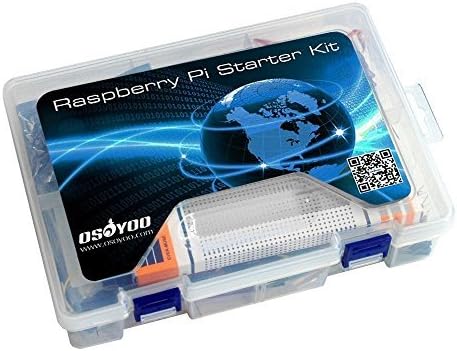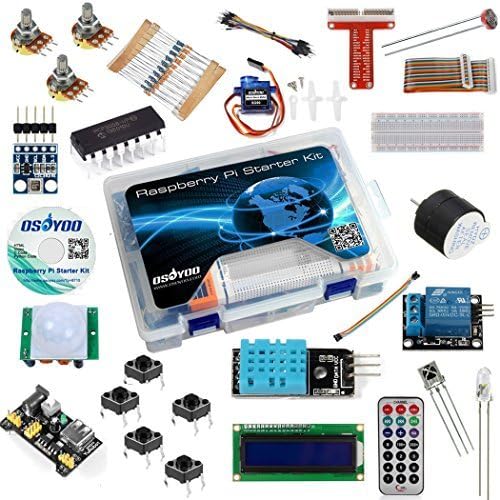
Product Details
Unlock the world of electronics and programming with the OSOYOO Raspberry Pi Starter Kit — your all‑in‑one companion for exploring maker culture, STEM learning, and hands‑on experimentation. Designed especially for beginners, teachers, students, and hobbyists, this kit delivers everything you need to start building interactive projects with your Raspberry Pi.
Inside you’ll find 111 units of components, spanning more than 22 different types. Included are LEDs of multiple colours, a 16×2 LCD display via I2C, temperature & humidity sensors, tilt switch, photoresistors, buzzer, servo motor, relay, and essential tools like jumper wires and a T‑shape GPIO extension board to protect your Raspberry Pi’s pins.
To support your learning curve, the kit comes with a line‑up of sample projects and tutorials. You’ll find guided lessons such as blinking LEDs, reading sensors (temperature, motion, light), driving displays, working with I2C modules, controlling servos, even building small interactive circuits. Detailed circuit diagrams, sample code, and visual aids make it approachable whether you are new to electronics or brushing up.
Compactly stored in a plastic box, this kit lets you keep everything organized while saving space. The components are designed to work with Raspberry Pi versions 2 and 3 (board not included), making this a great add‑on for learners to dive into programming with Python, explore GPIO pins, and bring ideas to life.
